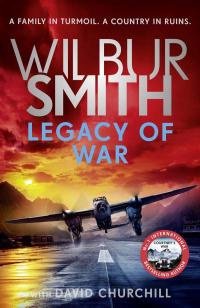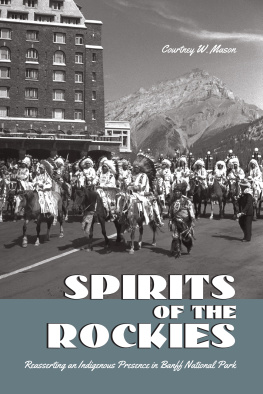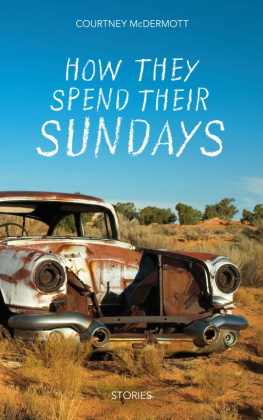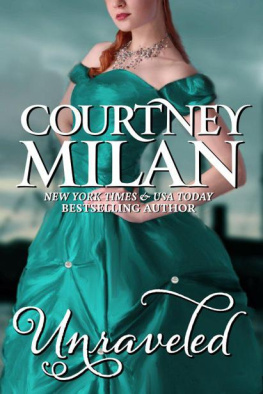Praise for
A thundering good read is virtually the only way of describing Wilbur Smiths books
IRISH TIMES
Wilbur Smith ... writes as forcefully as his tough characters act
EVENING STANDARD
Wilbur Smith has arguably the best sense of place of any adventure writer since John Buchan
GUARDIAN
Wilbur Smith is one of those benchmarks against whom others are compared
THE TIMES
Best Historical Novelist I say Wilbur Smith, with his swashbuckling novels of Africa. The bodices rip and the blood flows. You can get lost in Wilbur Smith and misplace all of August
STEPHEN KING
Action is the name of Wilbur Smiths game and he is the master
WASHINGTON POST
A master storyteller
THE SUNDAY TIMES
Smith will take you on an exciting, taut and thrilling journey you will never forget
THE SUN
No one does adventure quite like Smith
DAILY MIRROR
With Wilbur Smith the action is never further than the turn of a page
INDEPENDENT
When it comes to writing the adventure novel, Wilbur Smith is the master; a 21st century H. Rider Haggard
VANITY FAIR
CONTENTS
Cover
Praise for Wilbur Smith
Dedication
Kenya, June 1951
London
Lusima, June 1964
About the Author
Also by Wilbur Smith
The Power of Adventure
Copyright
I dedicate this book to my wife, Niso.
From the day we first met she has been a constant and powerful inspiration to me, urging me on when I falter and cheering me when I succeed. I truly do not know what I would do if she were not by my side. I hope and pray that day never comes. I love and adore you, my best girl, words cannot express how much.
KENYA, JUNE 1951
In the flickering, smoky light cast by torches of burning brushwood, Kungu Kabaya looked past the slaughtered goat lying in the middle of the abandoned missionary chapel towards the men, women and children watching in fearful expectancy.
There were around sixty of them, members of the Kikuyu tribe and squatters, as the white farmers called their black labourers. For no matter how hard a squatter worked; no matter how long he, or his father, or even grandfather had lived on the farm; no matter how skilfully he had built the hut in which he and his family lived: he only stayed on the farm with the farmers blessing and could be expelled at any moment, with no right of appeal.
Kabaya cast his eye towards a separate group of around twenty squatters, men and women alike, who had been selected to take part in tonights ceremony, and he nodded to the one at the head of the line. He was thin and gangly, no more than eighteen years old. With a young mans reckless bravado he had volunteered to be the first to take the oath. But as the gravity of his decision weighed upon him, his courage was giving way to anxiety and trepidation.
Kabaya approached him and put a fatherly arm upon his shoulder.
Theres nothing to fear, he said, speaking quietly so that only the youngster could hear him. You can do this. Show them all that you are a man.
The five men Kabaya had brought with him to the ceremony glanced at one another and gave nods or smiles of recognition as they watched the young man straighten his back and hold his head up high, his confidence restored. They had all served with Kabaya in the Kings African Rifles, a British colonial regiment, during World War Two, campaigning in Ethiopia against Mussolinis Italian armies and then in Burma against the Japanese. They had watched as he had been promoted from private to company sergeant major within five years. And for each of them there had been times when Kabaya had found the words to keep them going in times of hardship, or given them courage when the fighting was most fierce.
When they came home to East Africa to discover that their military service had earned them neither human rights, nor decent jobs, Kabaya and his men had turned to crime. Their gang was one of many that emerged in the teeming shanty towns that had sprung up around the Kenyan capital, Nairobi, but it swiftly became the most powerful. The gangsters had become rebels and still they followed Kabaya. Whether a soldier, a criminal or a terrorist, their boss had a genius for leadership.
Kabaya stepped back to leave the young man alone in the middle of the floor. As he did, his second in command, Wilson Gitiri, sat beside the goat, placing the wickedly sharp, long-bladed panga knife with which he like all of Kabayas men was armed, on the floor by his right hand.
Kabaya was a tall, handsome, charismatic man. He was highly intelligent, confident in his ability to win people over by reason and charm as well as fear. Wilson Gitiri was malevolence personified. He was shorter in stature than his commander, but he was as barrel-chested as a bull. His face was criss-crossed with thick welts of scar tissue. His eyes were permanently narrowed, forever searching for possible threat. His hair was plaited into tight braids that were gathered in a ridge that ran from the back to the front of his scalp like a soldiers forage cap. His presence in the chapel was an act of intimidation.
An earthenware jug, a battered tin cup and a length of rope had been placed by the head of the goat. Gitiri poured a small measure of thick, dark, viscous liquid from the jug into the cup, before replacing both vessels in their original position.
Minutes earlier, Gitiri had removed one of the goats legs with a single blow from his panga. He had skinned the severed limb, cut the muscles away from the bone and diced the uncooked flesh into twenty cubes, which he piled in a wooden serving bowl. This, too, sat on the floor beside the animals body.
Kabaya glanced at Gitiri to ensure he was prepared.
Gitiri nodded.
Kabaya said, Repeat these words after me ... I speak the truth and vow before God, and before this movement of unity ...
I speak the truth and vow before God, and before this movement of unity, came the response, like a parishioner following his pastors lead.
The oath-taking began as Kabaya spoke and the young man repeated the next lines:
That I shall go forward to fight for the land,
The lands of Kirinyaga that we cultivated.
The lands which were taken by the Europeans
And if I fail to do this
May this oath kill me ...
Gitiri stood, holding the tin cup in one hand and the wooden serving bowl in the other. He held out the bowl. Kabaya took a piece of raw, bloody meat and offered it to the young man, saying, May this meat kill me ...
The young man, whose eyes kept darting towards Gitiri as if he dared not leave him out of his sight, hesitated. Kabaya glared at him, his eyes fiercer, more demanding this time. The young man took the meat, repeated, May this meat kill me, and put it in his mouth. He chewed twice, grimaced, then downed it in one swallow.
Gitiri held out the cup. Kabaya took it from him and said, May this blood kill me ...
The young man repeated the words and drank a sip of blood from the tin cup.
The other Kikuyu tribespeople in the hall looked on in awed, horrified fascination as two separate strands in their culture were woven into a single binding cord.
Solemn blood-oaths had long been central to Kikuyu life, though in the past they had been restricted to elders rising to the highest councils of the tribe. Within the past seventy years they had been converted to Christianity and were familiar with the rite of Holy Communion: the blood of Christ and the flesh of Christ, expressed in wine and wafer. This was a darker, deeper, more African communion. It spoke to the very core of their being and everyone, from the youngest child to the most snowy-haired grandparent, knew that any oath taken under such circumstances was a sacred, unbreakable vow.
Next page












